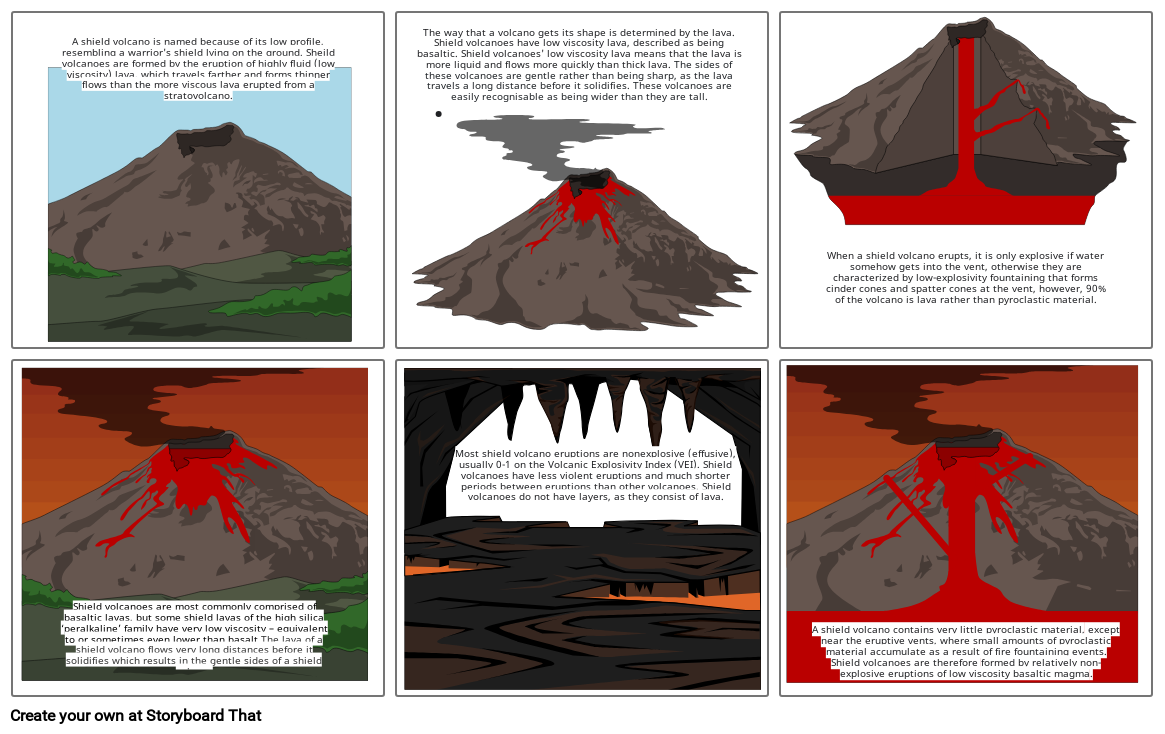volcano

Storyboard Tekst
- Lysbilde: 1
- A shield volcano is named because of its low profile, resembling a warrior's shield lying on the ground. Sheild volcanoes are formed by the eruption of highly fluid (low viscosity) lava, which travels farther and forms thinner flows than the more viscous lava erupted from a stratovolcano.
- Lysbilde: 2
- The way that a volcano gets its shape is determined by the lava. Shield volcanoes have low viscosity lava, described as being basaltic. Shield volcanoes' low viscosity lava means that the lava is more liquid and flows more quickly than thick lava. The sides of these volcanoes are gentle rather than being sharp, as the lava travels a long distance before it solidifies. These volcanoes are easily recognisable as being wider than they are tall.
- Lysbilde: 3
- When a shield volcano erupts, it is only explosive if water somehow gets into the vent, otherwise they are characterized by low-explosivity fountaining that forms cinder cones and spatter cones at the vent, however, 90% of the volcano is lava rather than pyroclastic material.
- Lysbilde: 4
- Shield volcanoes are most commonly comprised of basaltic lavas, but some shield lavas of the high silica ‘peralkaline’ family have very low viscosity – equivalent to or sometimes even lower than basalt The lava of a shield volcano flows very long distances before it solidifies which results in the gentle sides of a shield volcano
- Lysbilde: 5
- Most shield volcano eruptions are nonexplosive (effusive), usually 0-1 on the Volcanic Explosivity Index (VEI). Shield volcanoes have less violent eruptions and much shorter periods between eruptions than other volcanoes. Shield volcanoes do not have layers, as they consist of lava.
- Lysbilde: 6
- A shield volcano contains very little pyroclastic material, except near the eruptive vents, where small amounts of pyroclastic material accumulate as a result of fire fountaining events. Shield volcanoes are therefore formed by relatively non-explosive eruptions of low viscosity basaltic magma.
Over 30 millioner storyboards opprettet

